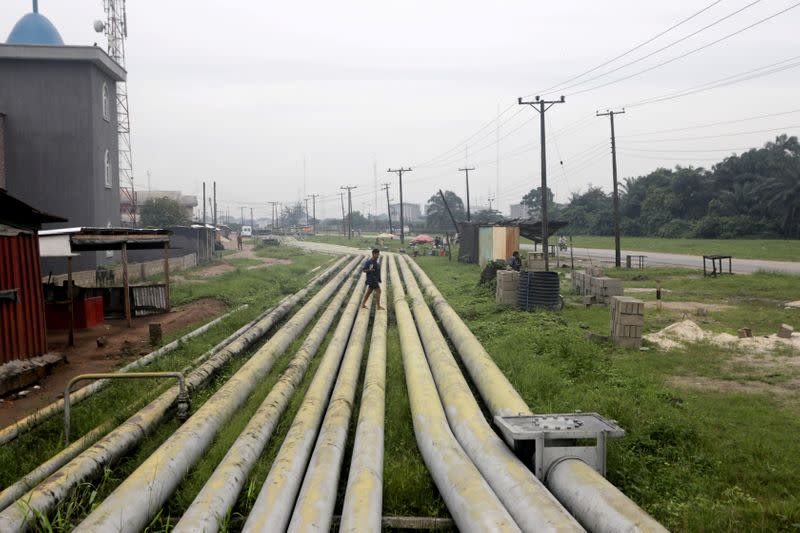LONDON – Phasing out consumption of fossil fuels in favour of zero-emission sources of energy will cause major social and economic disruption, creating a large number of losers as well as winners.

Source: Reuters
Policymakers have begun to focus on the need for a just or equitable transition to address some of these impacts and broaden political support for ambitious decarbonisation.
Like any welfare-improving public policy, it should in theory be possible for the winners to compensate the losers through taxes, subsidies, transfer payments and other government programmes.
In practice, government help to cope with the costs of industrial transition and adjustment has rarely been enough to offset the losses of the worst-affected groups.
Structural economic changes caused by industrial transformation and changes in international trade have often created significant numbers of losers who have been hard to help through retraining and other policies.
The zero-emissions energy transition is likely to have a similar impact. Providing transitional assistance to those individuals and communities hardest hit by the energy transition is likely to prove harder than policymakers anticipate and needs to be a major sustained focus.
POTENTIAL LOSERS
The largest group of potential losers will be low-income consumers in high-income and middle-income countries across North America, Europe, the Middle East, and Asia.
They spend less on fuels and the energy-content of goods and services than richer fellow citizens, but it represents a higher share of their post-tax income.
Lower income groups will be hardest hit by any increase in energy costs as a result of carbon pricing and upfront capital costs stemming from switching to decarbonised electricity-based systems for heating and transport.
In principle, losses for lower income groups can be offset by changes to other taxes and government spending programmes.
For that reason, carbon taxes may be preferable to other forms of carbon pricing because they create a revenue stream with which to compensate lower income consumers.
The second group of losers, far fewer in number, will be those businesses and workers in energy-intensive industries such as iron and steel, chemicals and cement manufacturing.
Most of their higher energy costs will be passed on to consumers in the form of higher prices, but only if all manufacturers face a similar increase in the transition-related cost of energy.
Harmonised international carbon prices and carbon border adjustments (tariffs) will be needed to create a level playing field and avoid the loss of enterprises and employment to other countries with low or no carbon prices.
The third group of losers will be those businesses and workers directly involved in the production, refining and distribution of fossil fuels – initially mostly in coal, but later in oil and gas.
Fossil fuel producers are the least numerous of the groups that will be hit by the energy transition but will suffer the greatest impact.
The impact will be exacerbated because fossil fuel producers tend to be concentrated in particular communities, regions and countries.
TRANSITIONAL CHALLENGES
Structural change and the decline of coal and other heavy industries have created large pools of surplus labour and population in these areas, leading to unemployment, under-employment and depressed incomes.
Broadly, government policies have focused either on moving people out of depressed areas to regions with stronger labour markets, or encouraging new businesses to move into the deprived areas.
In practice, moving businesses and jobs has proved easier than moving people, given strong local community ties, so government policy has usually ended up trying to create new businesses in declining regions.
Some policies have focused on retraining workers, others have focused on encouraging creation of new businesses through tax breaks, subsidies, investment programmes, infrastructure, and free trade zones.
In the 1990s, China encouraged state-owned coal mining companies to create new non-coal businesses to employ workers no longer needed to mine coal, a strategy of regeneration through diversification within existing firms.
In Spain, Britain and other countries, miners were encouraged to retire early on more generous benefits or claim disability, to soften the impact of mine closures, but that failed to create viable long-term regional economies.
Multiple tax breaks, subsidies and special training problems have been employed to drive regeneration but success has been limited.
The United States has had trade adjustment assistance for workers and communities hit by trade liberalisation since the 1960s, but it has not softened political and public criticism about the loss of manufacturing jobs.
For the last century, retraining workers and creating new businesses to employ them in the same region has consistently proved very much harder than policymakers expected.
Policymakers are right to focus on the need to cushion the social and economic disruption from the energy transition for consumers, workers and businesses, but they must not underestimate the scale of challenge.
John Kemp is a Reuters market analyst. The views expressed are his own.

